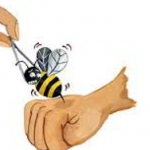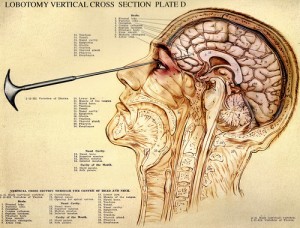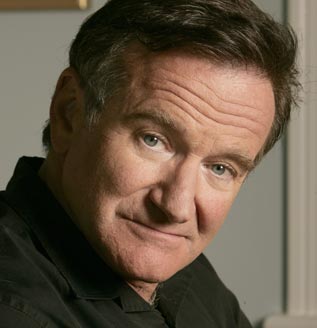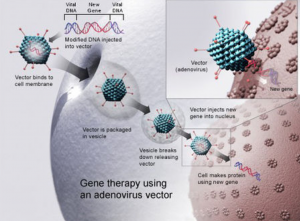Robin Williams died last week and he will be missed greatly.
The chronology of events leading to his death came together quickly, yet the puzzle remains incomplete. Williams had a history of substance abuse, but was said to have been sober for years. Last month he checked into a premier substance abuse treatment facility in Minnesota for their 12-step treatment program. News reports carried the last known photo of Williams, taken at a Dairy Queen near the rehab facility. He looked worn out, not a hint of the animated performer we’d grown to love.
Accounts from friends and taped interviews of various talk show appearances gave us a glimpse into Williams’ long-term battle with drugs and alcohol; about his struggle with depression. The details of how he died are gruesome and sad. Toxicology findings will be released in a couple of weeks.
It struck me as I followed the news updates and a flood of tributes, commentaries and expert opinions, that although Williams’ recent stay at an addiction treatment facility was mentioned, the information was presented more as evidence of his deteriorating condition than as an indication of efforts to help him get well. Was anyone concerned or disappointed that the most recent round of 12-step treatment apparently failed to improve his condition? It seemed not.
And that’s when I realized that people today seem to have very low expectations of today’s addiction treatment. And in the case of Robin Williams’ final days, it appears to have been just one more thing he did before committing suicide.
Some of the experts that lined up to explain Williams’ recent mental state and behavior, did address his history with substance abuse and addiction, including his recent round of 12-step treatment. But all of that was rendered irrelevant to what quickly became the lead story of Robin Williams’ apparent struggle with depression.
Had he been diagnosed and treated for depression? The experts offered nothing tangible, but agreed that he must have been seeking help of some kind.
Robin Williams reportedly did not leave a suicide note to explain his actions. We do not have a toxicology report to know if substances influenced his decision to leave this world on Monday, August 11. We have not learned whether he had been professionally diagnosed or was being treated for any mental, behavioral or neurological conditions other than substance abuse. But none of this interfered with the experts and media representatives announcing conclusively the next morning morning that Robin Williams suffered from severe depression that led to his apparent suicide.
And with that, a seemingly inexhaustible supply of people came forward to share their personal experiences with depression. A mix of treatment professionals touted various depression treatment methods while physicians and scientists assured audiences that depression is a disease to be treated with therapy and pharmaceuticals – even with targeted brain stimulation. Some experts said that depression might contribute to substance abuse, others explained that substance abuse often leads to depression, while still others moved right into a discussion about the neurobiology of depression which involves the same brain regions and brain functions as substance abuse and other harmful addictions.
The day before Williams’ death, the headlines had announced that 83% of Americans now believe the nation’s war on drugs has been lost[i]. On the heels of that news I expected word of his suicide to trigger demands for a new and better battle plan. Wouldn’t you? But just as the public was acknowledging the abject failure of current practices to slow the spread of addictions and the mounting death toll of those it was intended to help, our attention was abruptly diverted. In less than 24 hours, depression had effectively pushed the failed war on drugs and what had been declared public enemy #1, substance abuse, out of the headlines.
But it didn’t stop there. Within 48 hours, The New York Daily News reported that according to his wife, Robin Williams went to his death sober, suffering with both depression and Parkinson’s disease. It took less than three days for the national tragedy of addiction, and the failed national effort to combat it, to be swept aside.
While the evolving story pulled the spotlight from the blatant need to change how we approach substance abuse and other life-threating addictions, it did shine new light on depression and Parkinson’s, both devastating conditions centered in the same brain region and involving the same neurotransmitter system as addiction. And like substance abuse, eating disorders, and other addictions, neither depression nor Parkinson’s can be objectively detected, diagnosed or treated.
Research has connected substance abuse with both depression and Parkinson’s, naming substance abuse a principle contributor or key component of the other two[ii]. It stands to reason therefore, that if there were a means to overcome substance abuse and other addictions, a means that tackled the addiction at the root, not merely at the symptoms, it also could derail addiction’s advance to other debilitating conditions.
Right now, today, there is a significant body of research supporting the position that people should be able to fully overcome substance abuse and other life-threatening addictions. And there is sufficient direction in the research findings to guide how to re-frame the existing treatment method in order to effectively achieve that goal.
If this is all so obvious, why isn’t the addiction industry pursuing this goal and strategy? The reason, I believe, lies in the industry’s deeply entrenched belief that substance abuse and other addictions represent a chronic disease that cannot be overcome but must be managed daily. The belief is based on the idea that a dysregulated brain function leads people to use substances and engage in other harmful behaviors they can grow to depend on, and over time can progress to full-blown chronic addiction.
Because the industry believes that addiction is chronic and cannot be overcome, their treatment objective is to manage the addiction symptoms each day. But because the addiction industry, along with nearly everyone else, is recognizing that the prevailing treatment method fails to manage symptoms effectively, they are turning to a long-term strategy for managing the symptoms directly. It would not involve twelve steps and group support, but would aim specifically at altering the brain function they see as the source. To that end, pharmaceutical R&D and genetic engineering efforts are at the forefront of their work[iii]. In the meanwhile, the industry has determined that it will maintain its current policies as well as on-going diagnostic and treatment practices.
An entire industry, over a million jobs and hundreds of thousands of esteemed reputations all rest on the premise of addiction as a chronic disease or condition to be managed daily for life. Three generations have been raised in this belief and the 12-step model permeates society. To suggest now that addiction is not chronic, that it should be fully treatable, might be seen as an affront to the industry’s entire belief system. I know; I’ve felt the sting of their response.
 And what’s so wrong with their new direction? On the surface, the idea of altering the brain and how it functions, as a means to change a person’s harmful desires and behaviors seems logical. But it is not new. In fact it’s actually a strategy that’s been tried before through the practice of frontal lobotomy and electro-shock therapy. A host of pharmaceutical cocktails have been prescribed in an effort to adjust brain chemistry. And in treatment’s early days, “spin therapy” was practiced where patients were directed to spin around until they collapsed[iv] with the goal of relieving “brain congestion.” While these procedures indeed altered peoples’ behavior, the results were not desirable. And now the big idea is to genetically engineer changes to the brain in order to manage the symptoms of addiction.
And what’s so wrong with their new direction? On the surface, the idea of altering the brain and how it functions, as a means to change a person’s harmful desires and behaviors seems logical. But it is not new. In fact it’s actually a strategy that’s been tried before through the practice of frontal lobotomy and electro-shock therapy. A host of pharmaceutical cocktails have been prescribed in an effort to adjust brain chemistry. And in treatment’s early days, “spin therapy” was practiced where patients were directed to spin around until they collapsed[iv] with the goal of relieving “brain congestion.” While these procedures indeed altered peoples’ behavior, the results were not desirable. And now the big idea is to genetically engineer changes to the brain in order to manage the symptoms of addiction.
 All of this overlooks one thing. What if the brain region and functions targeted for change are configured and operate just as they were intended? What if the harmful urges and behaviors associated with addiction have been learned; are not adverse effects of a dysregulated neurotransmitter system? Are all people with this form of neurotransmitter system struggling with substance abuse or other harmful addictions? Might this class of brain system encourage people to be driven; not driven to harmful behaviors, but driven to pursuits they find extremely rewarding? And what if people who have grown dependent on substances and other harmful behaviors could meet their need for extreme reward through new and productive behaviors they could learn to replace their harmful ways?
All of this overlooks one thing. What if the brain region and functions targeted for change are configured and operate just as they were intended? What if the harmful urges and behaviors associated with addiction have been learned; are not adverse effects of a dysregulated neurotransmitter system? Are all people with this form of neurotransmitter system struggling with substance abuse or other harmful addictions? Might this class of brain system encourage people to be driven; not driven to harmful behaviors, but driven to pursuits they find extremely rewarding? And what if people who have grown dependent on substances and other harmful behaviors could meet their need for extreme reward through new and productive behaviors they could learn to replace their harmful ways?
The body of evidence supporting this line of thinking is large, growing and compelling. It points to new strategies for treatment that do not call for altering a person’s brain or brain functions, but instead teach people how to choose and learn new rewarding behaviors. And it suggests that the proper goal of treatment is not to manage addiction symptoms, but to help people learn to live rewarding and productive lives, free of addiction.

No one knows for certain what led Robin Williams to take his life last week. But would he have wanted his brain and the way it functioned to be altered, changing who he was? Or would he have preferred to find new ways to use the tremendous gifts he’d been given and the unusual ways he saw things, to highly productive and rewarding ends? I’m pretty sure he would have chosen option #2.
Robin Williams can’t take a stand on this or any position anymore. So won’t you please join me in standing up for him?
[i] Rasmussen Poll [ii] http://www.ncbi.nlm.nih.gov/pubmed/21375485 http://news.health.com/2014/08/15/does-depression-cause-brain-disease/ [iii] Genetic engineering [iv] Benjamin Rush spin therapy




